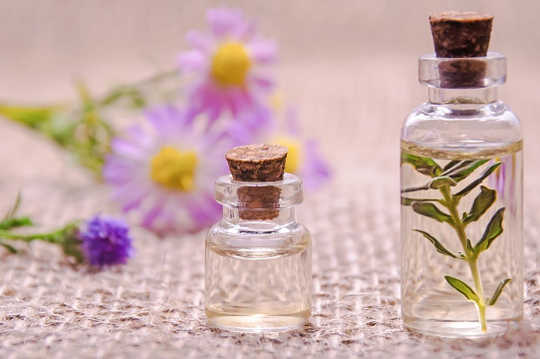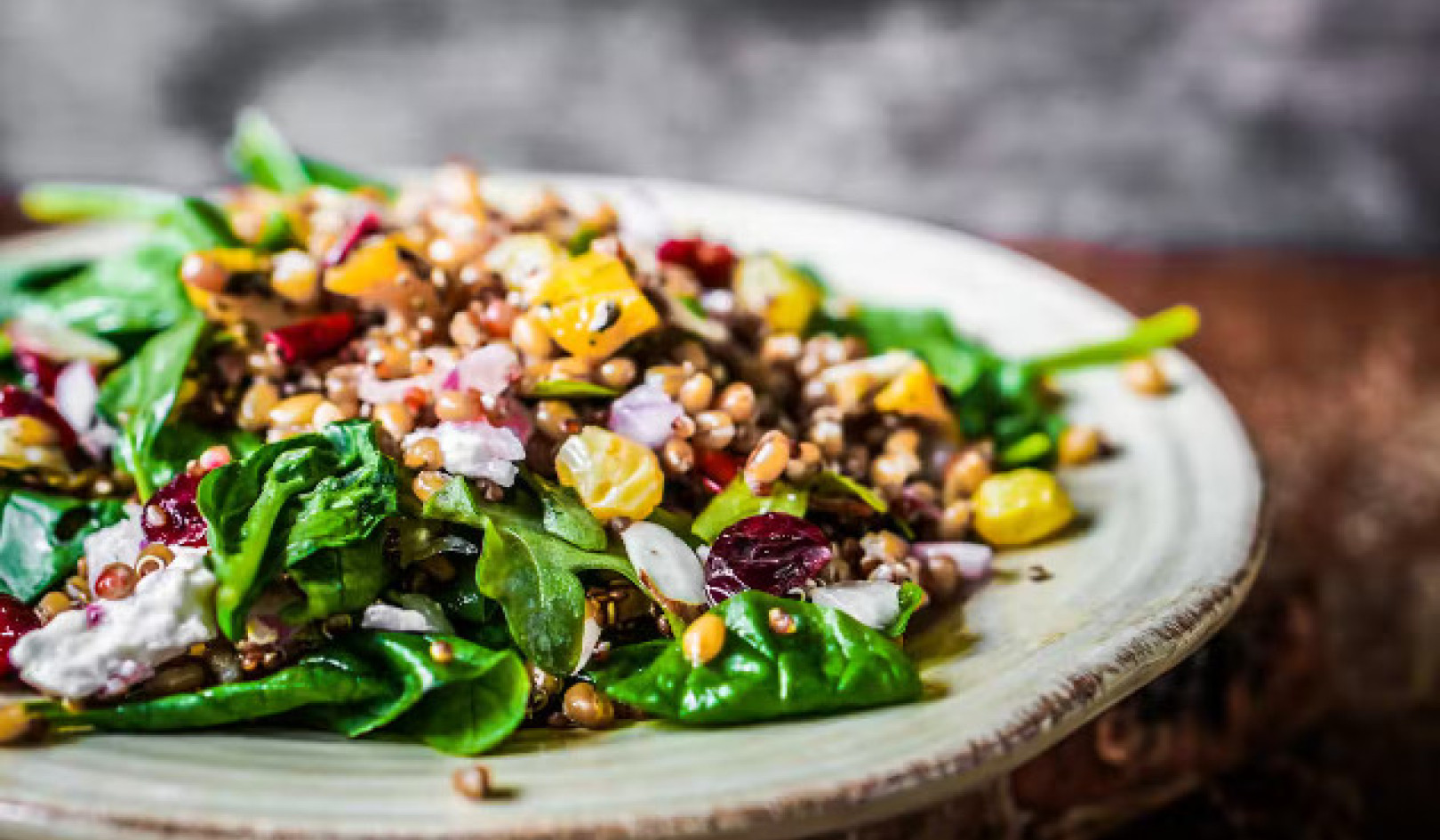
The stillest point of a seesaw is at its pivoting center.
While there are various techniques and styles of meditation, all meditation appears to share the same universal objective: attainment of a state of inner calm and peace. The specific emphasis provided by the use of the term mindfulness or mindful awareness is that of defining the central aim as simply to be, to hone and sustain conscious awareness of being in the present moment.
Unconditional consciousness of the present moment naturally disables and dispels thoughts entrenched in the past or future. At the epicenter of the present moment, there is no place for past regrets, traumas, or disappointments; there is also no place for future fears, joyful anticipations, uncertainty, or expectations. They do not exist.
The Present Moment Is All There Is
In reality, we actually only ever exist in the present moment. This is reflected across many disciplines, as described by actor, activist, and proponent of Transcendental Meditation Russell Brand:
I shall tell you now and for no extra charge that “living in the present” seems to be the key component across every scripture, self-help book and religious group I’ve encountered. To harmonize with life in each moment, not to make happiness contingent on any prospective condition. Not to be tormented by the past but to live in the reality of “now,” all else being mental construct. [Revolution, Russell Brand]
Conscious of being in the immediacy of now, we are more awake to our experience of the world, the environment around us, and our immediate inner and outer senses. Sustaining present moment consciousness through mindfulness or meditation is like bringing color to a sepia picture, switching on a light, or pulling back a curtain from a window.
Moment-Centered Consciousness
Moment-centered consciousness allows us to clearly see, experience, and sensually observe the richness of what is actually here and now. This is “enlightenment.” Darkness is not the opposite of light but the absence of light; it therefore cannot exist where there is light. Objects blocking light create a shadow, and once they are removed, the shadow no longer exists.
Ruminating thoughts, memories of the past, concerns for the future, or present worries, such as about an unpaid bill, may insidiously move into the foreground of awareness, filling the frame of consciousness and creating shadows. Meditation enables the perceiver to reevaluate the pictures that arise, allowing awareness to encompass the whole scene unimpeded, not just the objects that have come to occupy center stage.
Meditation/mindfulness is a proactive, conscious choice, a gentle process the perceiver may apply:
The emphasis on present moment awareness recognizes that this moment is the only moment in which we can act: past moments are only memories that we cannot change directly and future moments are only ideas. But with a realistic appraisal of thoughts, emotions and bodily sensations as they are perceived in the present moment we can move from a passive reactive mode of behavior to one that is infused with initiative and choice. [Vidyamala Burch]
Meditation is a voluntary process that is safe and cost-effective. More significantly, it offers a tool that potentially supports individuals in maintaining their personal locus of control, without the unwelcome side effects often associated with taking antidepressant or sedative drugs (although these do, in some instances, play an important role as temporary support). Where drug medication is unavoidably necessary, the concurrent practice of meditation, in some circumstances, has been shown to reduce the quantity required and the duration of their prescription.
The Complementary Role Of Essential Oils
Essential oils have accompanied us like guardians and companions on our ever-evolving journey through time and life, appearing in the form of fumigants, incense, cleansers, antiseptics, antibiotics, bactericides, and preservatives, as well as psychosomatic, hedonistic perfumes, which have not only been worn to adorn and attract but also to protect, to symbolize intention, and to punctuate and accentuate rite and ritual.
Modern scientific investigation, equipment, and methodology have enabled greater insight into the practical mechanisms, properties, components, and chemistry of organic and inorganic matter, providing better understanding of the world around us. They have also taught us much about the physical body and its healthy function, as well as about viruses, bacteria, disease, and the significant role diet and lifestyle (as well as attitude) play in supporting and maintaining wellness. As holistic health and well-being resurges into the foreground, so too the mind-body-spirit connection is increasingly recognized and acknowledged as a significant feature of wellness.
Essential oils continue to be used—as they have been throughout history—for their protective, restorative, rehabilitative, hedonistic qualities, seamlessly providing physiological and psycho-emotional-spiritual support, apparently bridging the pragmatic, natural, and ethereal dynamics of life and existence.
In this respect, rather than separating one view from another (reductionism vs. vitalism), science may contribute, dispelling misguided myth and misbelief, providing insight into the amazing capacity of the body, and confirming the complementary relationship and role that plants, energetic medicines, and remedies play in assisting maintenance of health and homeostatic balance -- the best of both worlds. Indeed, applied as medicine, as beautifying ingredients, and as spiritual aids, the unifying quality of essential oils provides a link between humans, nature, and psycho-spiritual realms.
Numerous references are made within historical medical texts, treatises, and scriptures demonstrating this dynamic role:
He who has two cakes of bread, let him dispose of one of them
for some flowers of the narcissus; for bread is the food of the body,
and the narcissus is the food of the soul.
|-- GALEN (129-200 CE), GREEK PHYSICIAN,|
SURGEON, AND PHILOSOPHER
The sick man . . . thou shalt place . . .
Thou shalt cover his face
Burn cypress and herbs . . .
That the great gods may remove the evil
That the evil spirit may stand aside
May a kindly spirit, a kindly genius be present.
-- ANCIENT BABYLONIAN INCANTATION FOR FEVER,
ASAKKI MARSUTI, TABLET XI
The herbs ought to be distilled
when they are in their greatest vigor,
and so ought the Flowers also.
-- NICHOLAS CULPEPER (1616-1654),
THE ENGLISH PHYSITIAN ENLARGED
Perfume and incense bring joy to the heart.
-- PROVERBS 27:9
Evidenced through their historic and continued use in religious, cultural, and spiritual practices, essential oils significantly provide qualities potentially supportive in the context of prayer, intentional focus, and meditation. They have a demonstrated psycho-emotional influence on the limbic system, variously affecting mood and emotion, with the capacity to calm, sedate, or uplift.
Certain essential oils, such as frankincense and patchouli, regulate breathing, instilling a sense of peace and tranquility; they consequently aid in quieting an anxious, racing mind. Other essential oils, such as rose and mandarin, are gently stimulating and uplifting. Yet others, among them lavender and geranium, possess both calming and stimulating qualities and are emotionally balancing.
Essential Oils Anchoring Us in The Now
Essential oils also have the ability to anchor us in our experience of the moment through the immediacy of fragrance awareness, especially when they are deliberately directly inhaled (drops on a tissue, for example) or infused into the surrounding environment.
Indeed, odor detection forms an ancient, intrinsic facet of human (and animal) survival mechanisms and is powerfully associated with memory. Thus, essential oils can be applied to reinforce memory and to aid recall of events, thoughts, and feelings experienced during original odor detection, as well as instilling or procuring attributed psycho-emotional qualities.
For example, an essential oil or blend of essential oils diffused and detected during meditation may be deliberately inhaled afterward to trigger recollection of the experience of being in meditation, thus potentially recapturing the sense of stillness and calmness felt there and then in the here and now. This can act as a reminder to continue to meditate, to maintain conscious awareness of the present moment, and to experience feelings of calm and peace here and now.
This facet, along with their other significant psycho-emotional qualities, renders essential oils valuable complementary tools, particularly when applied with techniques such as counseling, psychotherapy, and cognitive behavioral therapy (CBT), as well as meditation and relaxation techniques.
In addition to mindfulness and essential oils, wellness is enhanced by the addition of relaxation techniques, sufficient exercise, and healthy nutrition.
©2018 by Heather Dawn Godfrey. All Rights Reserved.
Excerpted with permission. Healing Arts Press,
a division of Inner Traditions Intl. www.InnerTraditions.com
Article Source
Essential Oils for Mindfulness and Meditation: Relax, Replenish, and Rejuvenate
by Heather Dawn Godfrey Explaining methods to incorporate essential oils into your practice, Heather Dawn Godfrey introduces readers to the “Gem” essential oils--a group of oils specifically selected for attaining and maintaining a state of mindfulness, as well as a broad spectrum of therapeutic properties--and she provides an easy-to-follow chart to help you select the oil that is right for you. Offering a hands-on practical guide to integrating essential oils into mindful and meditative practice, the author shows how each of us has the ability to self-generate a calm, tranquil, and worry-free state of mind. (Also available as a Kindle edition.)
Explaining methods to incorporate essential oils into your practice, Heather Dawn Godfrey introduces readers to the “Gem” essential oils--a group of oils specifically selected for attaining and maintaining a state of mindfulness, as well as a broad spectrum of therapeutic properties--and she provides an easy-to-follow chart to help you select the oil that is right for you. Offering a hands-on practical guide to integrating essential oils into mindful and meditative practice, the author shows how each of us has the ability to self-generate a calm, tranquil, and worry-free state of mind. (Also available as a Kindle edition.)
About the Author
 Heather Dawn Godfrey, PGCE, BSc, is an aromatherapist, fellow of the International Federation of Aromatherapists, and an aromatherapy teacher. She has published a number of articles and research papers exploring the benefits of essential oils, such as how they can be applied in the management of ADHD. Heather was introduced to the philosophical tenets and practice of complementary medicine and meditation in the early ‘70’s. She worked for Robert Tisserand when he first developed his essential oil business in London, later completing a BSc (Joint Hon) degree in Complementary Medicine and Counselling, Masters certificates in Mindfulness and Supervision of Counsellors, and a Post Graduate Certificate in Education (PGCE), among other qualifications. Vist her website at http://www.aromantique.co.uk
Heather Dawn Godfrey, PGCE, BSc, is an aromatherapist, fellow of the International Federation of Aromatherapists, and an aromatherapy teacher. She has published a number of articles and research papers exploring the benefits of essential oils, such as how they can be applied in the management of ADHD. Heather was introduced to the philosophical tenets and practice of complementary medicine and meditation in the early ‘70’s. She worked for Robert Tisserand when he first developed his essential oil business in London, later completing a BSc (Joint Hon) degree in Complementary Medicine and Counselling, Masters certificates in Mindfulness and Supervision of Counsellors, and a Post Graduate Certificate in Education (PGCE), among other qualifications. Vist her website at http://www.aromantique.co.uk
An Interview with Heather Dawn Godfrey: An Introduction to Essential Oils
{vembed Y=k5UXXQQmVhM}
Related Books
More books on this topic
at

Thanks for visiting InnerSelf.com, where there are 20,000+ life-altering articles promoting "New Attitudes and New Possibilities." All articles are translated into 30+ languages. Subscribe to InnerSelf Magazine, published weekly, and Marie T Russell's Daily Inspiration. InnerSelf Magazine has been published since 1985.

Thanks for visiting InnerSelf.com, where there are 20,000+ life-altering articles promoting "New Attitudes and New Possibilities." All articles are translated into 30+ languages. Subscribe to InnerSelf Magazine, published weekly, and Marie T Russell's Daily Inspiration. InnerSelf Magazine has been published since 1985.























